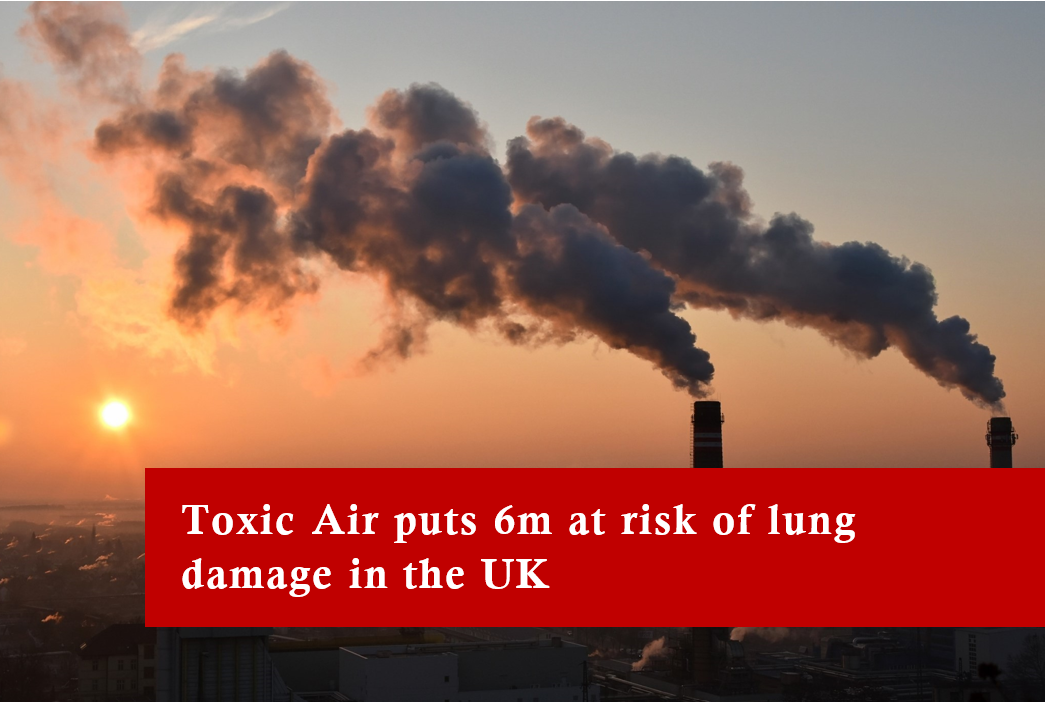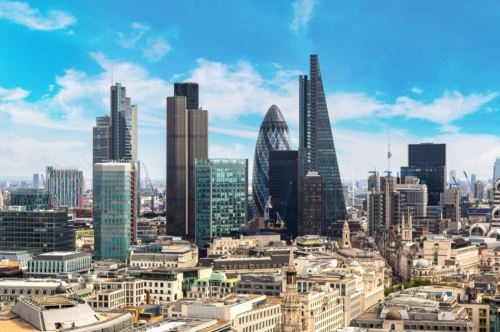Toxic Air puts 6m at risk of lung damage in the UK

Around six million people aged over 65 in England are at high risk of lung damage and asthma attacks because of toxic air, according to a new report from the British Lung Foundation (BLF) and Asthma UK.
The report finds that older people and those with lung disease who are most vulnerable to the effects of pollution are often the most exposed. It comes as MPs also demand the government sets tougher targets for air pollution. Improving air quality needs to be "at the core" of the UK's post-pandemic rebuild, say members of a House of Commons committee that focuses on environmental issues.
The new report finds that a quarter of all care homes and a third of all GP practices and hospitals in England are in places where particulate pollution exceeds the limits recommended by the World Health Organisation (WHO).
Particulate pollution consists of tiny particles known as PM2.5s which have a diameter of less than 2.5 micrometres across - that is one-four-hundredth of a millimetre, or about 3% of the diameter of a human hair. PM2.5 particles are so small they can lodge in the lungs and even pass into the bloodstream and there’s evidence they can damage blood vessels and other organs.
There are no safe limits for PM2.5s, but the WHO recommends that concentrations should not exceed 10 micrograms per cubic metre, however, the current legal limit for PM2.5 in the UK is twice the WHO recommendation, at 20 micrograms per cubic metre.
It’s estimated that between 30,000 and 40,000 premature deaths each year are caused by exposure to toxic air. Air pollution also increases the chances of a person developing lung cancer and cardiovascular disease and may be associated with cognitive decline, including dementia.
Responding to the report, Environment Minister Rebecca Pow said: "Air pollution has reduced significantly since 2010, however, we know there is more to do. Our landmark Environment Bill will set at least two ambitious legally-binding air quality targets, with a primary focus on reducing exposure to particulate matter pollution. As part of this, we will consider the World Health Organization's guidelines for PM2.5. Read the whole story at the BBC
Indoor air pollution can be five times higher than that
outside – readknow the facts to help keep the air you breathe clean.
Return to top
Latest Articles
Evotech sponsors BIG North Pole Sea Ice Research Expedition
Read More >Evotech expands its footprint with new London hub
Read More >Government launches Occupational Health Taskforce
Read More >200 schools in London to have air filters installed in classrooms
Read More >



